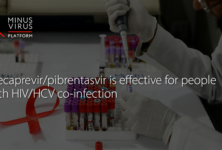People living with HIV often worry about whether HIV is accelerating the aging process. HIV itself isn’t making many people ill, but some people with HIV are having problems with heart disease, cancers and brittle bones. These conditions — typically experienced as people get older — seem to be occurring at higher rates in people with HIV than in the general population. And they seem to be occurring at a younger age.
In trying to understand why this may be, you can find yourself delving quite deeply into some pretty technical and occasionally obscure areas of HIV science. It seems that people living with HIV may lose some degree of immune function over time, compounding deficits that typically occur in later years. Further, chronic inflammation — in other words, the immune system being in a constant state of high-alert in response to HIV infection — appears to have harmful effects on cells, tissues and processes.
For the moment, the practical implications of this emerging field of knowledge are unclear. Specific therapies to counteract chronic inflammation do not exist.
But the studies on age-related conditions and life expectancy do give some clear indications of what people living with HIV can do to improve their health as they get older.
Smoking and Life Expectancy
Let’s take, for example, a recent study that looked at death rates among clients of Kaiser Permanente. It compared almost 25,000 HIV-positive people with ten times that number of HIV-negative people.
There have been steady increases in life expectancy for people with HIV since 1996, but a troubling gap remains between their life expectancies and those of HIV- negative clients. Based on 2011 estimates, a 20-year old living with HIV could be expected to live to the age of 69, compared with an HIV-negative person living to the age of 82 — a thirteen-year difference.
But the researchers identified some people with HIV who had better prospects: People who began HIV treatment with a CD4 account above 500 could be expected to live to 74. And people who began treatment at that stage and had never smoked would live to 79.
Further exploring the impact of smoking on life expectancy, another group of researchers recently put data on the health of Americans living with HIV into a mathematical model. The researchers took as their example people who are diagnosed with HIV and start antiretroviral therapy (ART) at the age of 40.
They found that — on average — a male smoker with HIV who carried on using cigarettes would live until the age of 65. This compared with 72 years for a man who had never smoked.
A female smoker with HIV would live to 68, compared with 74 for a female non-smoker.
When looking at how a male smoker living with HIV could improve his prospects, the researchers found that quitting smoking would have the greatest impact, by adding almost six years of extra life.
Smoking and Disease
Smoking cuts people’s lives short through strokes, heart attacks and other forms of cardiovascular disease; cancers of the lung, mouth, esophagus and bladder; emphysema, bronchitis and other forms of chronic obstructive pulmonary disease — to list just a few.
Smoking could both shorten your life and have a significant impact on your quality of life. None of those health conditions are especially pleasant to live with.
That’s true for everyone, HIV positive and HIV negative. But it looks as if smoking — in some cases — may do more damage to HIV-positive than HIV-negative people. It may have a greater physiological impact on HIV-positive people.
For example, a very thorough Danish study compared the risk of heart attack in people living with HIV and people in the general population. Matching people of the same age and gender, it found that current smokers living with HIV had an almost three-fold increased risk of heart attack compared with smokers who were HIV negative. Ex-smokers living with HIV had an almost two-fold increased risk.
But people living with HIV who had never smoked had no greater risk of heart attack than matched non-smokers in the general population.
Similarly, smoking seems to have more of an impact on chronic obstructive pulmonary disease in people living with HIV than in other people.
Focus on What Can Be Changed
Rates of smoking are alarmingly high in people living with HIV. Researchers recently pooled the results of 45 different studies from North America and Europe. They found that 54% of people with HIV were smokers. That’s in contrast with just 15% of the general population of the United States.
There are people out there who are anxious about the impact HIV has on the aging process, but who continue to smoke. This is to be preoccupied by a threat that we don’t quite understand and are not sure how to deal with, while neglecting a very real health threat that can be changed and brought under control.
Physicians and community organizations need to make helping people give up smoking central to the way they take care of the health of those living with HIV. Achieving change in this area may make more difference than almost anything else they do.
And people living with HIV need to be ready to seek and accept help with getting over this addiction. It’s important to know that nicotine replacement products (such as patches and sprays) and the medications bupropion and varenicline are proven to help people quit smoking. Combining this with counseling or other support can further boost the chances of staying off tobacco in the long term.
A Centers for Disease Control and Prevention campaign features “tips from former smokers“. One former smoker is Brian, a man living with HIV who survived a stroke. He contrasts smoking with HIV, which he says will be part of his life forever: “Smoking is something that you do have control over,” he says. “You can stop. And it’s worth your life to stop smoking.”
By Roger Pebody


 ПОИСК ПО САЙТУ
ПОИСК ПО САЙТУ  поиск по ресурсному центру
поиск по ресурсному центру 



